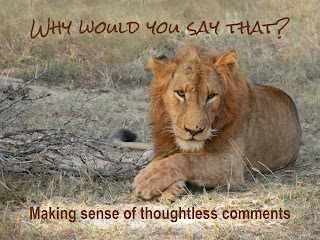Almost five years ago I began writing a series of posts under my Healing Project title. It was early 2020, and I didn’t realise the irony of the title, just when healing was about to become so difficult as the pandemic took hold across the world. We still haven’t healed from the changes that were wrought – societal, biological, political – during that pandemic, and covid still takes lives.
I tried to look back, see what had helped me heal, and move through each concept methodically. Yes, I have it marked here in a separate page on this blog. But frankly, if you read this on a mobile device, you won’t see the links easily, and any new readers might be completely unaware of the project. So here is a summary post, with links to each original post:
Day 1 - Show Up. Showing up is halfway there. Acknowledging that there is healing to be done, and that you are ready to be open to the idea that you can, in fact, heal from the grief of childlessness, is a major step.
Day 2 - Feel. There’s no healing without feeling. What you resist persists. Feel what you feel – that honesty is valuable.
Day 3 - Delight. Delight and joy show that life is always worth living, and they are signs that we will be okay. Let it find you. Let yourself feel it.
Day 4 - Surrender. Surrender. It so often is not a sign of weakness, but a sign of resolve, a sign of hope, and a new beginning.
Day 5 - Love. Love yourself. It brings compassion, empathy and comfort. To yourself, and then to others.
Day 6 - Forgive. Forgive yourself, your body (or your partner’s body), your emotions and decisions (and your partner’s emotions and decisions) and limits. It’s a gift to yourself, and brings new opportunities.
Day 7 - Honour. Honour yourself, honour your partner (if you have one), and honour those you have lost. Honour them all by living well. Honour. It’s so much more productive than guilt.
Day 8 - Write. Writing saved me. At the very first, it simply released me from having to remember, allowing me to sleep. Then gradually became the way I figured out what I thought, how I felt, and how I could move forward.
Day 9 - Appreciate. Learning gratitude is one of the first steps in healing. Appreciating the tiny joys in life, and then eventually seeing the benefits of a No kidding life, help us appreciate the life we have, rather than the one we lost.
Day 10 - Balance. Balance and perspective are what help us know we will be okay.
Day 11 - Dare. The beginning of acceptance is being brave. Shrugging off what hasn’t worked for us. Daring to be positive about our lives. Beginning to hope for something new.
Day 12 - Accept. We need to accept what has happened to us, accept our reality. That brings us to the second step – taking acceptance, and making it part of us. Because when we can do that – without self-recriminations, without judgement, without cringing – we can put an end to the battle. Sure, we carry everything we’ve been through with us, but with acceptance, we carry the lessons, rather than interminable pain.
Day 13 - Connect. You are not alone. Connections – whether in real life or online – help us feel normal, teach us wisdom, encourage us as we develop, walk beside us, and hold us when we fall.
Day 14 - Enquire. Asking questions, challenging assumptions and stereotypes, can silence those negative voices in our heads, the stories we tell ourselves about ourselves. But we can also challenge the assumptions of those people around us, their thoughts of the childless, as well as challenging our own thoughts about others. It’s my favourite technique of all, I think.
Day 15 - Admit. Admitting the truth to ourselves, the realities of our situations, our thoughts, our expectations, all help us to navigate our lives.
Day 16 - Experience. Living each of our lives is a unique experience. When one choice is taken away, maybe we don’t know what to anticipate. But perhaps we don’t need to. Experiencing life, day by day, can bring great joy.
Day 17 - Speak. I try to choose my moments. I speak here, and I speak up from time to time around family and friends and acquaintances who sometimes resort to false stereotypes or assumptions, and I speak more publicly when I can. Most importantly, I speak these truths first to myself. Maybe that's all some of us might need. I refuse to feel invisible, or diminished, and that prompted me to speak, and feel more truly myself.
Day 18 - Remember. Remembering is not dangerous. It helped me learn from everything I went through. Most importantly, it reminded me of the love I set out with. My memory has to be focused on the love – for my losses, for my husband, for myself. The pain has diminished, and now I can simply remember and feel the love.
Day 19 - Liberate. Liberate yourself from your own expectations, from society’s limitations, from stereotypes and judgemental voices, from guilt and pain, so that you can embrace yourself and your life. Liberation. It’s both the result of, and the penultimate step to healing, living and enjoying our No Kidding lives.
Day 20 - Celebrate. Celebrate your survival, your wisdom, the connections made, your new life and its unexpected joys.
